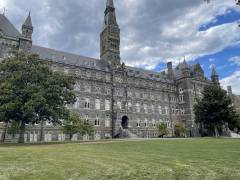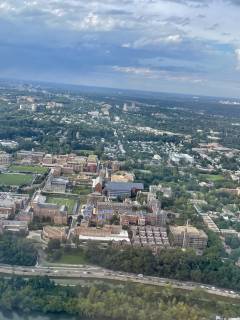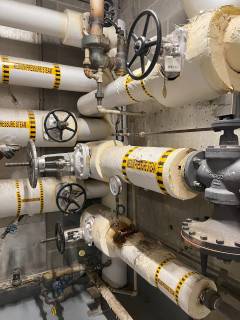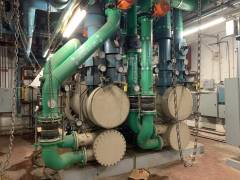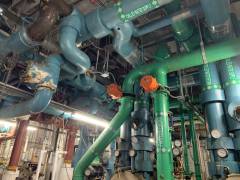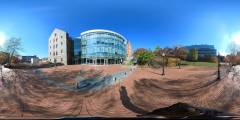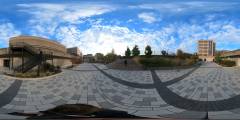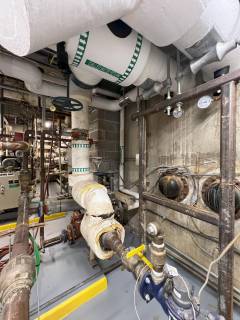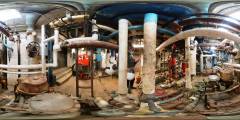Client: ENGIE North America & Georgetown University
Year: 2021 to Present
Project Highlights
- ~11,500 trench feet of heating and cooling buried distribution pipes
- Heating and cooling energy to 45 buildings on campus
- Critical hospital facilities are connected to the district energy system
Georgetown is taking significant steps towards a more sustainable Campus
Georgetown University established a private partnership with ENGIE during 2021 to operate and maintain their existing steam and chilled water district energy systems with contracted reliability and efficiency measures.
FVB was tasked to conduct a comprehensive feasibility study, to develop a practical technical path to successfully convert Georgetown’s campus from steam to a hot water system, and then assess the costs and carbon benefits of converting system to reach their target of carbon neutrality by 2030. FVB is responsible for the detailed design and construction support of a Steam-to-Hot Water Skid/Enclosure, steam/condensate piping extension, Heating Hot Water and Chilled Water distribution piping design, and Energy Transfer Stations within the buildings.
Projects to improve the steam and chilled water system through the campus, and energy planning initiatives included:
- Healy Lawn Utility Replacement Study and Detailed Design (2021 – Present)
- Campus-wide Steam to Hot Water Conversion Feasibility Study (Mar 2022 – Nov 2022)
- Technical Guidelines for Building Conversion and Green Development (Jan 2023 – Present)
- Geoexchange Analysis and Test Bore Program (Feb 2023 – Present)
The project has presented unusual challenges considering the history surrounding Georgetown University and being located within Washington D.C. The Campus Green is home to Heritage and Special trees that require special attention and larger offsets from the piping trenches as well as congestion of utilities. FVB has tackled the design challenge to protect historic trees, avoid existing utilities, and route the pipe to tie-in points and converted buildings while quickly adapting the project to fit the needs of the University and the District.
FVB prepared a feasibility study for converting the entire Georgetown University thermal infrastructure from steam to hot water. Campus steam loads and building heating configuration were reviewed and brought into consideration during the assessment of alternative hot water temperatures, including evaluation of economic and efficiency trade-offs. The study included the development of a phasing plan for the hot water distribution system, building and plant facilities modifications with implementation of heat recovery chillers, geoexchange, and satellite plants.
A particular challenge with the conversion of the Georgetown University campus is the on-site hospital system, MedStar. Temporary conversion requirements to maintain existing building service with minimal disruption was key for the development of the phasing plan
FVB further developed documents outlining the steam to hot water technical conversion guidelines of existing buildings at Georgetown University and design/operation requirements for new buildings at Georgetown University. The guidelines provided a framework for ENGIE, building designers, and contractors to ensure that existing and new buildings are compatible with the new hot water district energy system.
FVB also continues to support ENGIE and Georgetown University as Owner’s Engineer for miscellaneous projects including:
- Campus Chilled Water Distribution System Hydraulic Modeling
- Interconnection of new buildings on campus
- MedStar, the on-campus hospital, Steam to Hot Water Conversion
Read More
Visit Georgetown University
Keywords
Steam-to-hot water conversion, Geoexchange, Energy Infrastructure Master Plan










